第12章
At last Matthew Nikitich also arrived, and the usher, a thin man, with a long neck and a kind of sideways walk, his nether lip protruding to one side, which made him resemble a turkey, came into the jurymen's room.
This usher was an honest man, and had a university education, but could not keep a place for any length of time, as he was subject to fits of drunkenness. Three months before a certain countess, who patronised his wife, had found him this place, and he was very pleased to have kept it so long.
"Well, sirs, is everybody here?" he asked, putting his pince-nez on his nose, and looking round.
"Everybody, I think," said the jolly merchant.
"All right; we'll soon see." And, taking a list from his pocket, he began calling out the names, looking at the men, sometimes through and sometimes over his pince-nez.
"Councillor of State, [grades such as this are common in Russia, and mean very little] J. M. Nikiforoff!"
"I am he," said the dignified-looking man, well versed in the habits of the law court.
"Ivan Semionovitch Ivanoff, retired colonel!
"Here!" replied a thin man, in the uniform of a retired officer.
"Merchant of the Second Guild, Peter Baklasheff!"
"Here we are, ready!" said the good-humoured merchant, with a broad smile.
"Lieutenant of the Guards, Prince Dmitri Nekhludoff!"
"I am he," answered Nekhludoff.
The usher bowed to him, looking over his pince-nez, politely and pleasantly, as if wishing to distinguish him from the others.
"Captain Youri Demitrievitch-Dantchenko, merchant; Grigori Euphimitch Kouleshoff," etc. All but two were present.
"Now please to come to the court, gentlemen," said the usher, pointing to the door, with an amiable wave of his hand.
All moved towards the door, pausing to let each other pass. Then they went through the corridor into the court.
The court was a large, long room. At one end there was a raised platform, with three steps leading up to it, on which stood a table, covered with a green cloth trimmed with a fringe of a darker shade. At the table were placed three arm-chairs, with high-carved oak backs; on the wall behind them hung a full-length, brightly-coloured portrait of the Emperor in uniform and ribbon, with one foot in advance, and holding a sword. In the right corner hung a case, with an image of Christ crowned with thorns, and beneath it stood a lectern, and on the same side the prosecuting attorney's desk. On the left, opposite the desk, was the secretary's table, and in front of it, nearer the public, an oak grating, with the prisoners' bench, as yet unoccupied, behind it. Besides all this, there were on the right side of the platform high-backed ashwood chairs for the jury, and on the floor below tables for the advocates. All this was in the front part of the court, divided from the back by a grating.
The back was all taken up by seats in tiers. Sitting on the front seats were four women, either servant or factory girls, and two working men, evidently overawed by the grandeur of the room, and not venturing to speak above a whisper.